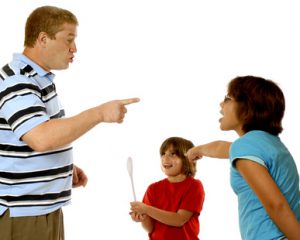They Know More Than You Think
Our children are geniuses. They know so much more than we think. In some sense, this is good. It helps them learn and grow. In other ways, not so good because they know much more about what is going on at home than we might imagine. For instance, a study published in the Journal of Child and Family Studies revealed how much children between 3-years-old and 6-years-old know about their family’s relationships and conflicts. They were able to describe negative and positive aspects of their family’s relationships. They could give detailed descriptions about family dynamics—good and bad dynamics. They could explain the emotions of various family members by giving detailed descriptions of facial expressions, tone of voice, and behavior. In other words, children are watching AND learning.
Based on this finding, we have to ask ourselves: Are our interactions and conflict management styles teaching our children how to interact and manage emotions in a positive way? Are we giving seeing and learning healthy skills as they watch and learn from our behavior, facial expressions, tone of voice, and interactions? What will they learn about relationships from us? What will they carry into their families based on the lessons they learn by watching us? Be aware and make sure your children learn more positive lessons by watching you.
The authors of this study also found that conflict between a parent and their child often remained unresolved. As a result, the child turned to a sibling or a pet for comfort during tension with a parent. I don’t know about you, but I don’t want my child to feel like a family pet offers more comfort than I do. So, resolve the conflict to keep the relationship open for comforting and support. You can resolve the conflict in a variety of ways, depending on the situation. For instance,
- You can sit down and talk after everyone has calmed down. Talks about what happened and why it created a problem. Then discuss how to manage similar situations in the future in a more productive and healthy manner.
- Apologize if and when you need to. Apologizing to our children when appropriate teaches them important lessons about responsibility, justice, and humility.
- Reaffirm your love for your child. Make sure they know you love them even when you disagree with them, get upset with them, or even discipline them. Affirm your love verbally and nonverbally every day as often as you can.
Children are keenly aware of the family dynamics in our homes. They watch us to learn about marriage, relationships, conflict resolution, compromise, and many other life skills that they will take with them into their own marriages and families. Make sure the lessons they learn from you are the lessons you want them to know for life.

-0 Comment-